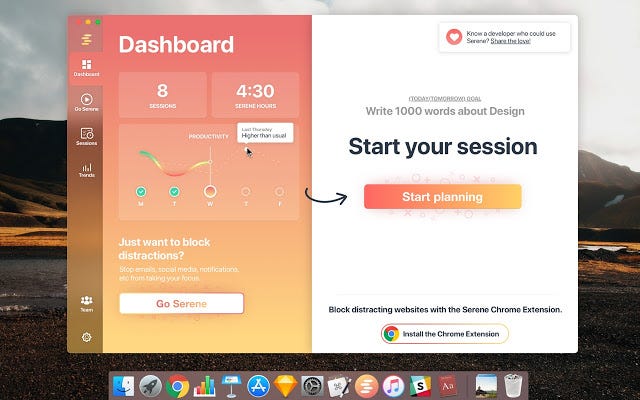The Multitasking Myth: Why Your Brain Performs Worse When You Do More
Multitasking isn’t efficient, it’s cognitive sabotage. Here’s how to lead with clarity instead of chaos.
In this issue:
What neuroscience really says about multitasking.
Why high-frequency context-switching kills focus, memory, and leadership presence.
A real-world story of how one leader reclaimed control by ditching the multitask hustle.
Welcome to this week’s edition of Applied Neurogenesis!
Here’s the truth no one wants to admit:
Multitasking is killing your clarity.
It’s not a skill. It’s a glitch. And your brain pays the price every time you indulge it.
The science is clear. What we call multitasking is actually rapid context switching, and every switch bleeds attention, drains memory, and degrades executive function.
If you’re over 50 and leading under pressure, the cost is even higher. You’ve got too much wisdom to waste on fragmented focus.
Let’s unpack what multitasking does to your brain and the simple shifts that fix it.
Why Multitasking Damages the Executive Brain
1. Multitasking Fractures Attention Networks
Switching between tasks activates the brain’s “start-stop” circuitry, causing micro-delays and disrupting flow.
Quick Tip: Use the “single-task sprint” method: work in focused 25-minute blocks with one clear objective and no interruptions.
2. Depletes Working Memory Capacity
Every switch requires your brain to reload context, which exhausts short-term memory and increases mistakes.
Quick Tip: Keep a “context switch notebook”: jot down what you’re working on before switching tasks to re-enter faster and reduce cognitive friction.
3. Triggers Chronic Stress Responses
Multitasking creates a low-level stress cycle, spiking cortisol and decreasing cognitive control over time.
Quick Tip: Use scheduled “cognitive recovery” breaks: 5 minutes every hour to breathe, walk, or reset in silence.
4. Reduces Decision-Making Quality
Split attention weakens the prefrontal cortex, leading to more impulsive, less strategic decisions.
Quick Tip: Prioritize high-stakes decisions during your first 90-minute work window—when your brain is sharpest and less distracted.
5. Undermines Presence and Influence
Multitasking during meetings or conversations sends a signal of disengagement—and lowers neurological trust and communication synchrony.
Quick Tip: Commit to “device-free dialogue” in key conversations to boost credibility, empathy, and mental alignment.
Innovations to Watch
Tools to help reduce multitasking and restore cognitive focus:
RescueTime: Tracks and scores your focus, helping you identify multitasking patterns.
Notion Templates for Time Blocking: Structure your day into deep work zones and reduce decision fatigue.
Serene App: A minimalist productivity tool that helps leaders single-task, set intentions, and block distractions.
Success Story
This week’s success story is Elisa, a 57-year-old executive who found herself constantly juggling emails, meetings, and strategic planning—all at once. After learning about the neural cost of multitasking, she shifted to time-blocking, deep work sessions, and device-free meetings. Within weeks, she reported fewer mistakes, better decisions, and a stronger presence with her team.
“I stopped reacting to everything—and started leading with intention,” she says.
Community Corner
This week’s top question comes from Mark:
“I feel productive when multitasking—how do I know if it’s actually hurting me?”
Great question, Mark. The illusion of productivity is common—but check the quality of your output, the accuracy of decisions, and your mental fatigue at day’s end. High-frequency switching leads to mental drag, not performance.
How have you trained your brain to focus in a distracted world? Share your insights with the Over51 community!
Multitasking isn’t a productivity hack—it’s a performance hazard. Leaders who reclaim their focus not only think better—they influence more, stress less, and lead with sharper strategy.
Want a free guide to eliminating multitasking and building a deep focus habit? Subscribe to Applied Neurogenesis for cognitive frameworks, brain-training tools, and performance strategies for leaders over 50.
Stay sharp,
Stu Morris




